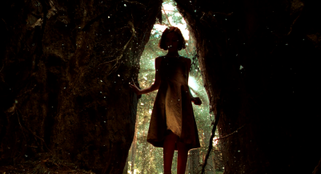 Charles Harris Scenes are the powerhouse of a screenplay - but too often they fail to grip their audience. This is due to a fundamental mistake that many writers make without realising. Conflict or dilemma? Everyone knows that a good scene needs external conflict - what most writers don't realise is that the external conflict is only half the story. At the heart of every good scene is a dilemma. A dilemma is essentially a situation in which your protagonist must make a choice between two equally bad alternatives. Without it your external conflict will remain superficial and uninvolving. Say, for example, your heroine is afraid of heights. She must save a child from falling to its death but can only do it by crawling onto a high ledge. Her inner dilemma draws us in. Either she stays safe, but loses the child, or she takes a risk and faces her worst fear. We want her to make the right decision - but at the same time we're afraid for her. Once she has made her choice, she is then plunged back into external conflict - lets say the ledge is slippery, the child difficult to grasp - which takes us to the next step in the story... and a new dilemma. Different stories This cycle of conflict and dilemma is by no means confined to high-tension action scenes, it comes into all kinds of scenes and genres. Take a recent episode of the legal drama series The Good Wife. Alicia Florrick's fledgling law firm has no money to pay for an assistant and so she's been relying increasingly on her teenage daughter, Grace. Grace willingly takes on a fight with their landlords but that leads to a dilemma when Alicia realises that her daughter is spending too much time on the company and sacrificing her own life. Alicia is faced with two bad options: jeopardise the firm or jeopardise her daughter's future. But she can't avoid the issue. She must make a decision and she must make it now. The choice she makes leads to her a fresh conflict - she has to confront Grace. Which in turn leads to a new dilemma. And so the cycle of dilemma and conflict continues... Your own scripts If written with energy and truth, alternating dilemma and conflict will always grip us. Now look at your own scripts. Whether planning, writing or editing, where could you bring out the dilemmas more clearly - or create them if they don't yet exist? Can you see how you could use the cycle of conflict/dilemma/conflict to strengthen your scenes? Was this tip useful? You can spend a day learning more scene-writing skills and turbo-boosting your scene-writing confidence at my workshop Creating Great Scenes in London on Saturday May 21st.
0 Comments
Leave a Reply. |
BLOGTHE ONLY PLACE TO TALK ABOUT THE CRAFT OF SCRIPTWRITING.
|
Privacy Policy © Euroscript Limited 2020

 RSS Feed
RSS Feed


